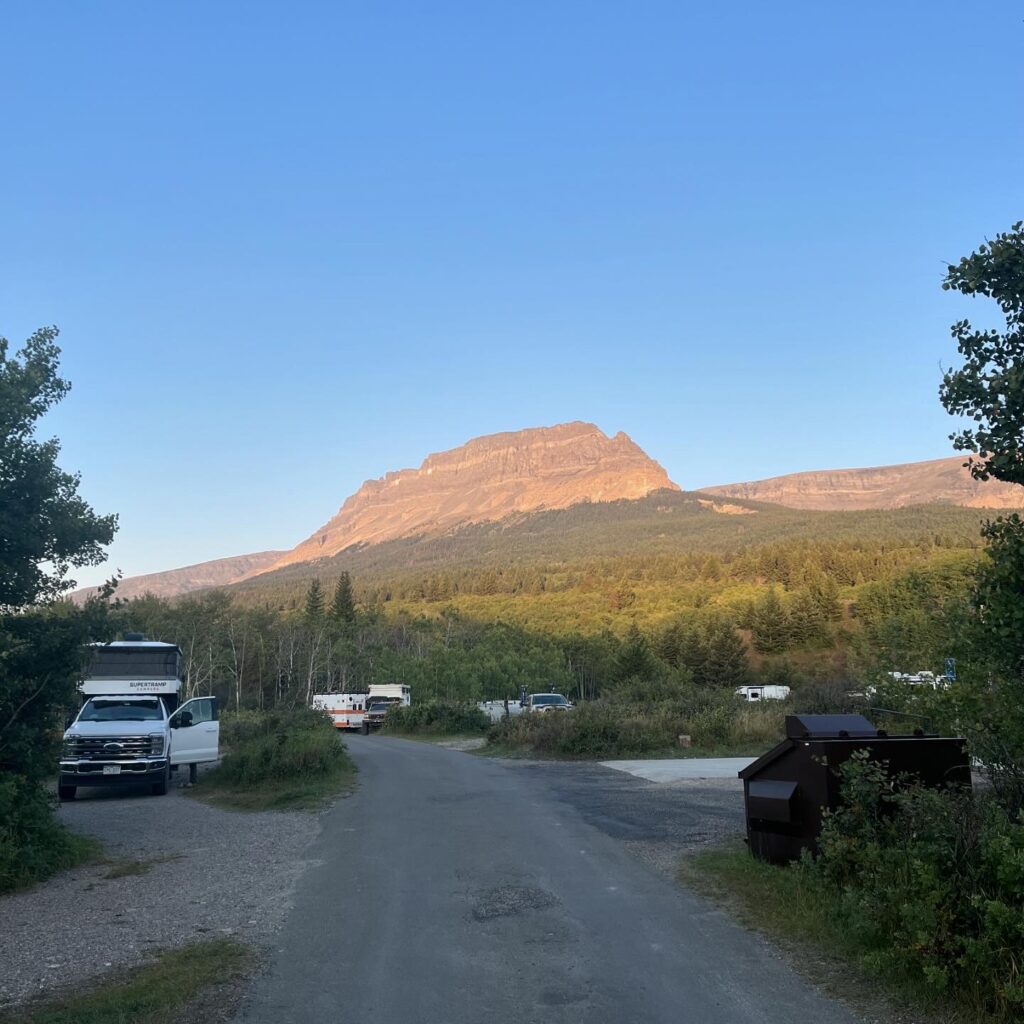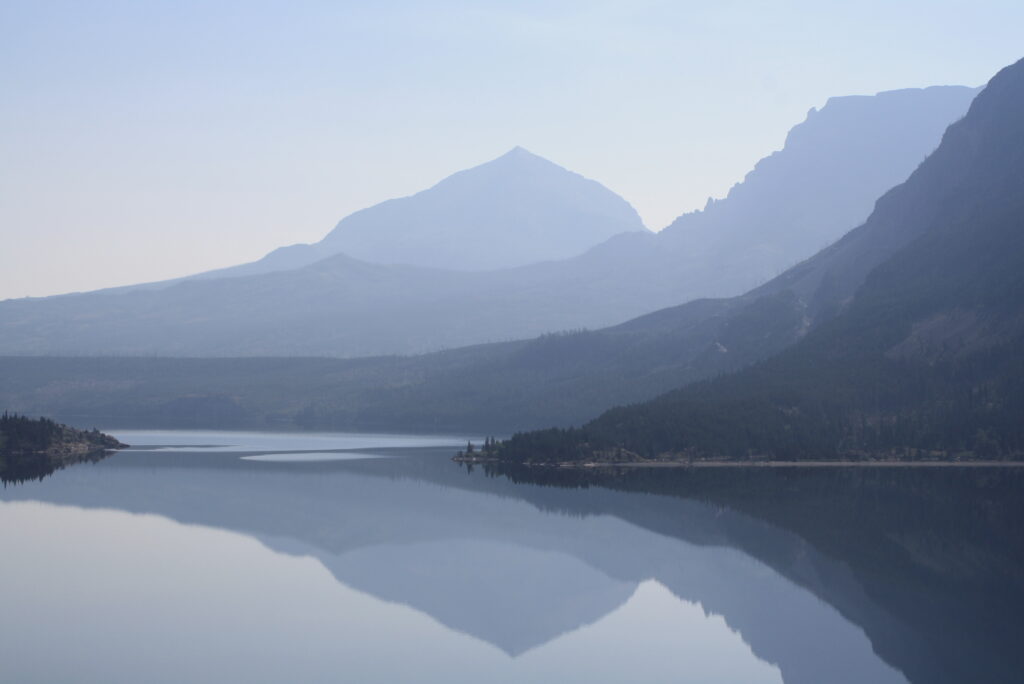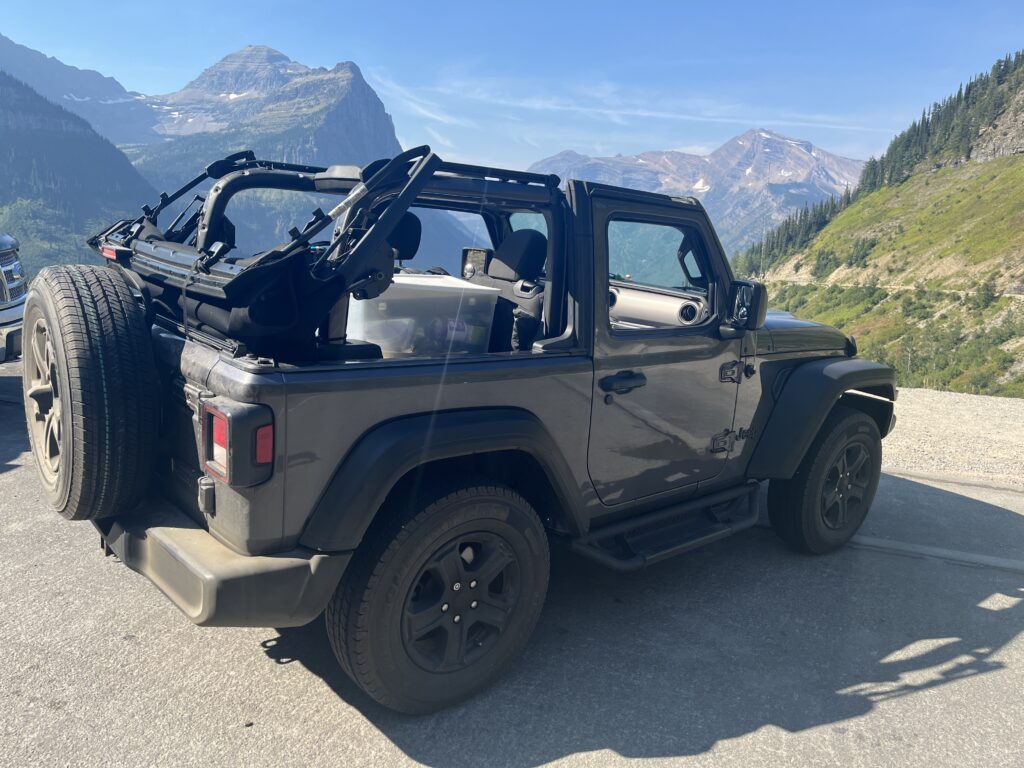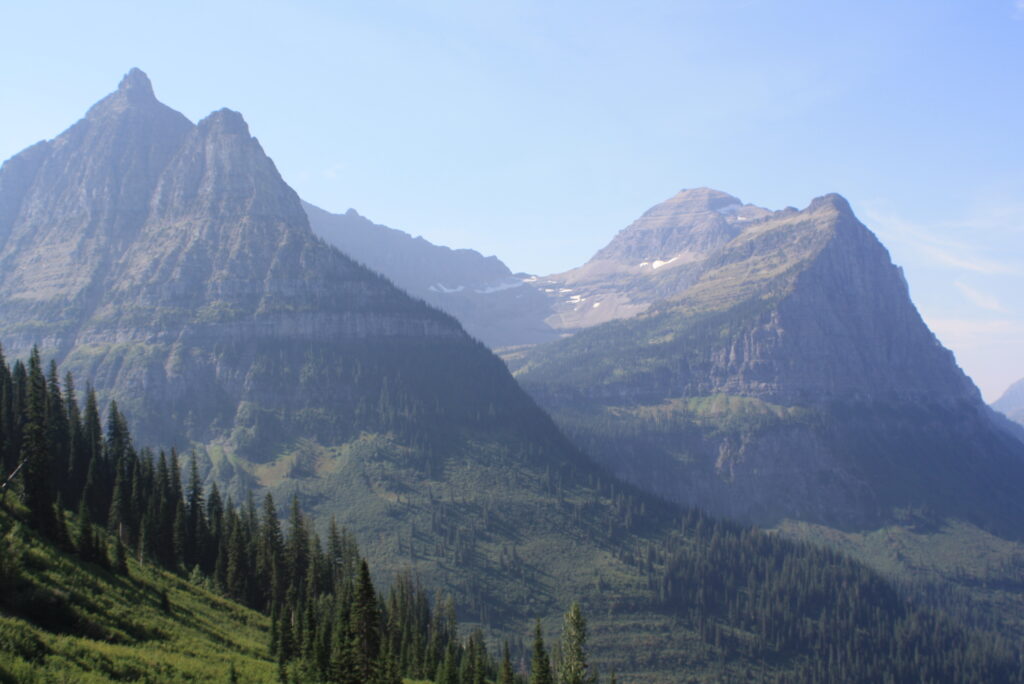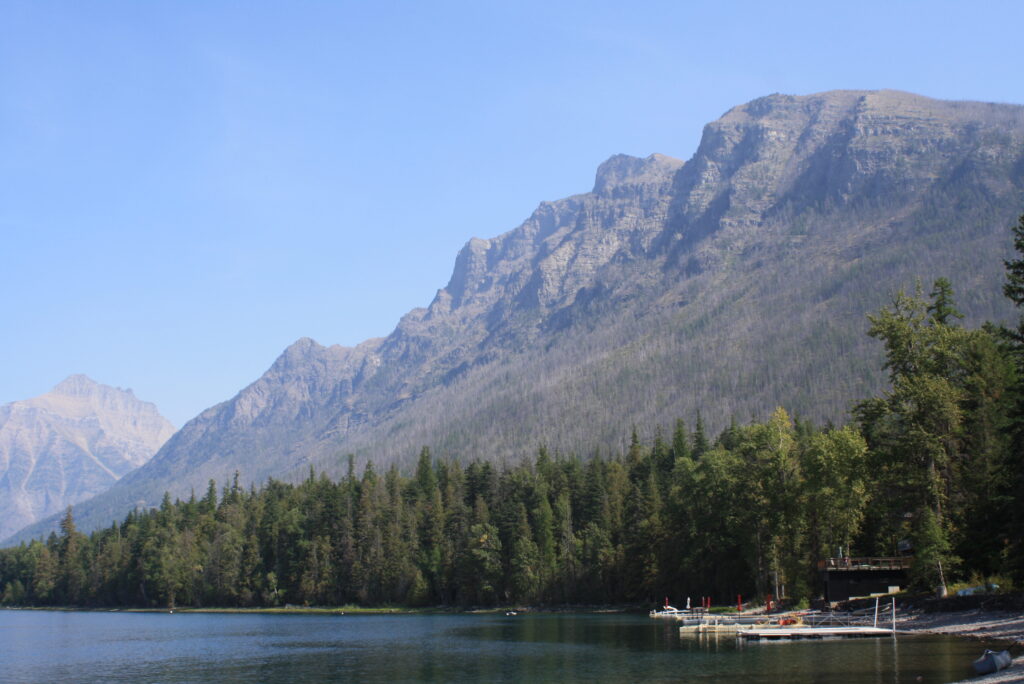“Kathy, I’m lost”, I said, though I knew she was sleeping
I’m empty and aching and I don’t know why
– Paul Simon
Two seemingly opposite things can be true at the same time. It is possible, for instance, that Paul Simon is an incredible poet and not a great human being. The stories about who did or did not get credit for the songs on “Graceland”, for instance, don’t reflect well on Rhymin’ Simon. Those stories burn like fires in the west, sending hazy smoke to distant places and making it hard to know what is really ahead of you, which you’d think would be obvious if what is ahead of you are the Rocky Mountains. In the strange way that climate change forces us to see the world today, the mountains of Glacier National Park can be more of a premonition on the horizon than a promise of an elevated destination when approached from the plains of Montana.
I had struck out across those plains with both a soundtrack and a story to keep me company. The soundtrack was mostly compiled by my brother-in-law for an all-night assault he had recently made on Perdido Key. I had added my own contributions from a similar expedition to the Grand Strand, along with a few selections specific to this trip. It was good company for a while, but I also found I needed a story and turned to David McCullough’s Mornings on Horseback in the hopes that TR’s experience of loss and healing in the American West might hold some wisdom for me. It passed the time and allowed my mind to focus on Teddy’s trials rather than my own.
For someone accustomed to the twists and turns of Blue Ridge Mountain roads, the long, straight stretches of the west can be mesmerizing if one looks at them long enough. The plains can also be challenging when gusts of wind catch the proportionally large and rectangular sides of a vehicle with a high center of gravity and a short wheel base, such as the Jeep Wrangler. So focusing one’s attention too narrowly can be dangerous, and letting one’s attention drift too far can be potentially disastrous.
Even if they were not obscured by smoke, I imagine that the mountains could still sneak up on a person under these conditions. Under the circumstances, it took me a relatively long period to understand that I was seeing what I was seeing. The mountains emerged first as a dim shadow on the horizon that may have been any sort of meteorological phenomenon. Then they began to take shape as something solid but with as yet to be determined shape and form. I started to wonder if this might not be an analogy for the way I would come to understand myself in the days, weeks, and months ahead. Finally, the mountains were truly mountains and surprisingly close for having been so recently authenticated. I couldn’t listen to McCullough anymore; it was time for music. Suddenly, Paul Simon came through the speakers to remind me of what I was doing: I’d come to look for America.
I was ascending and descending on a parkway with two potential destinations: St. Mary, Montana or Canada. The latter had no small appeal, but my goal was the former. Campgrounds on the eastern side of Glacier are, at that point in the season, first come first served. I realized I had arrived at the place where the predominate centers of population were to the west, unlike my home, where all attention is directed to the east. In the previous days, I had managed to secure a site in the western Apgar campground. On arrival, I found that there were also spaces available in St. Mary’s campground.
At this point, I started to believe that things might work out, not only for the evening, but for the trip as a whole. Getting COVID and delaying my departure had meant rearranging my itinerary and not visiting with some people I had hoped to visit, but it also meant that I was able to schedule two nights in Glacier rather than the one I had previously been able to squeeze in. A hotel reservation in Idaho had been promptly changed (which I would soon discover was directly across the street from a grocery store I would need to reprovision). It was as if I were being provided with what I needed at the moment it was needed, and I increasingly felt that this would continue to be as true for me as it seemed to be for the characters in Sun House.
I could have happily remained in the campground, reading my book as the sun set, anticipating my journey along the “Going to the Sun Road” the following morning. The beauty of that place, however, inescapably drew me to exploration. On my previous trip across the country, in the time before Google, I relied on a printed atlas to find my way. On the cover was a picture of a coastline where mountains descended dramatically to the ocean. I could not conceive that such a place actually existed before the day that I came around a curve on the Pacific Coast Highway near Monterey and saw the very picture spread out in front of my eyes. My first encounter with Glacier National Park at St. Mary Lake similarly stunned my senses and pierced my soul.
When it grew too dark to explore further, I retreated to my campsite and my tent, feasting on the leftover dirty rice that I had brought from Minnesota. I also gave some thought to the temperatures, retrieved my flannel pajama pants and tucked them into thick socks, donned a hoodie over my t-shirt, and wrapped the sleeping bag over my top sheet and under my blanket. Now we were getting somewhere.
I woke to clear skies, cold feet, and condensation in my CPAP tubing. To paraphrase Kate McKinnon, not the worst Sunday morning I have had. As I broke camp, I strategically packed the Jeep such that I could put the top down. While one might rightly wonder if it is sane to drive a vehicle like mine across the country, the experience of driving through the northern Rockies provides at least some justification for the stupidity of the days that had gone before. At lower elevations, the scent of spruce made the world smell like a Christmas Tree.
As the Going to the Sun Road rose to the tree line, the majesty of the mountains was all around me. Going into the heart of creation is not the same thing as going to church, but the greatest cathedrals cannot aspire to do more in terms of inspiring awe for the divine creator than these mountains do. And of course their dramatic effect is not simply the result of one day’s labor on the part of the deity. Their beauty represents eons of grinding and tearing, of being thrown up from displaced magma and scraped clean by glacial forces. Their stories are their beauty, as are ours.
Descending into Apgar, my mind turned to the days ahead. Despite my growing assurance that things would work out, I was also cognizant that I had to scan the internet, make the calls, and take the steps that I could take to cooperate in the process of having things work out. I sat on the shores of Lake McDonald, remembering a high school classmate who now bears that name and who works for the same company that once employed my father. My father was so big on planning that his master’s thesis is entitled “A Plan for an Engineer and His Wife”. That plan didn’t work out any better for him than it did for me, but that doesn’t mean that a plan’s not worth trying.
